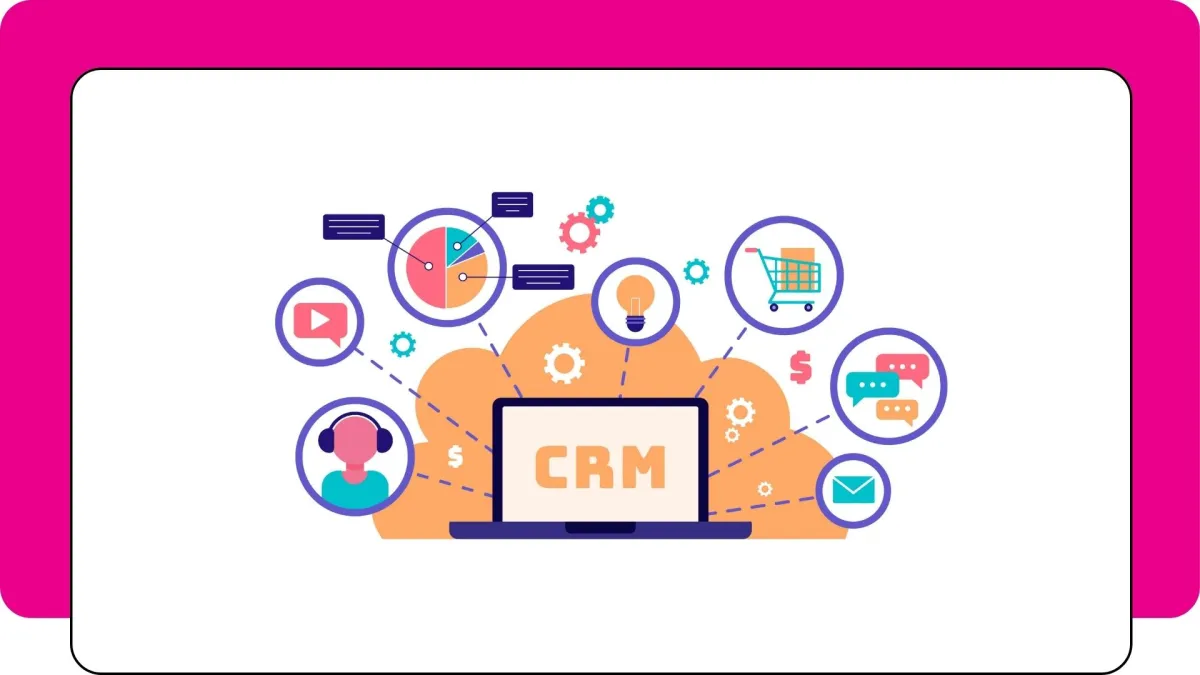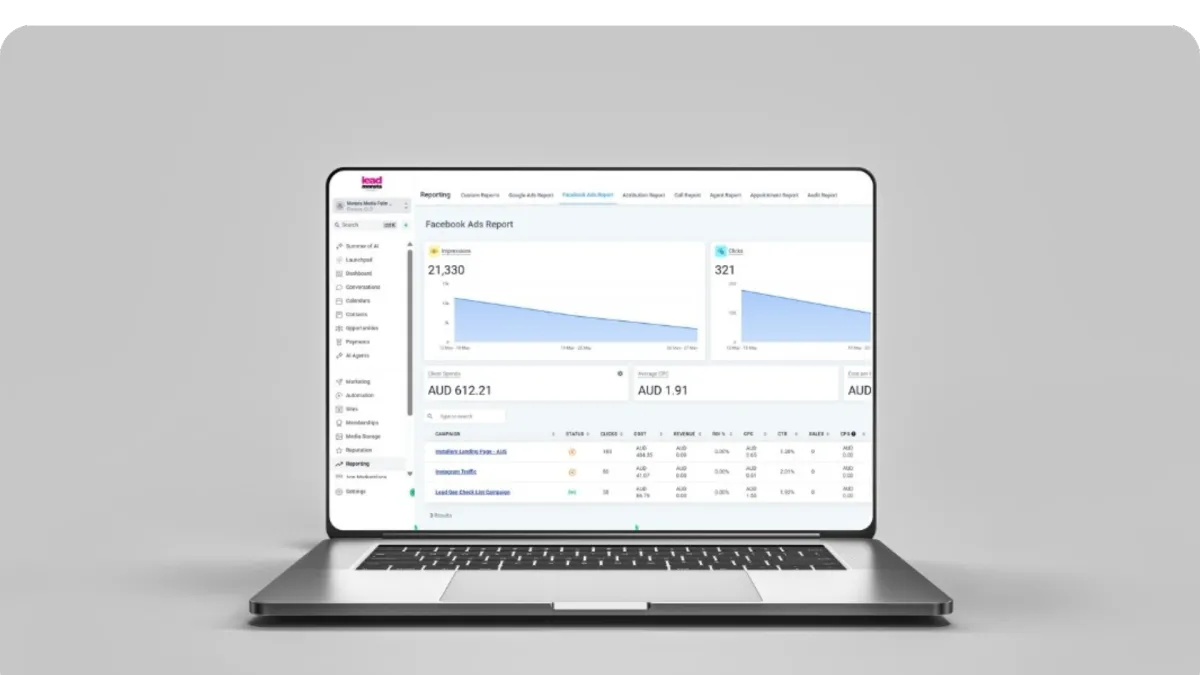
Why Cloud-Based CRM is a Game-Changer for Australian SMBs
In today's fast-paced Australian business landscape, connecting with customers, streamlining operations, and driving growth are paramount. For small to medium-sized businesses (SMBs), the answer often lies in embracing modern technology, and at the forefront of this digital revolution is cloud-based CRM Australia.
Gone are the days of clunky spreadsheets, disparate data, and missed opportunities. Cloud-based Customer Relationship Management (CRM) systems offer a centralised, accessible, and scalable solution that can transform how Australian SMBs manage their customer interactions, sales pipelines, and marketing efforts. This article will delve into the myriad benefits of adopting a cloud-based CRM, highlight essential features for Australian businesses, and even introduce you to a relevant solution like Lead Monsta CRM.
The Australian SMB Landscape: A Need for Efficiency
Australia's SMB sector is the backbone of its economy, making up over 98% of all businesses. However, many still grapple with outdated systems, leading to inefficiencies, lost leads, and a fragmented view of their customer base. In a competitive market, providing exceptional customer experiences and optimising internal processes are no longer luxuries but necessities. This is where cloud-based CRM steps in, offering a robust platform to address these challenges head-on.
What Exactly is Cloud-Based CRM?
Before diving into the benefits, let's clarify what we mean by cloud-based CRM. Essentially, it's a software solution for managing customer relationships that is hosted on the internet (in the "cloud") rather than on your company's own servers. This means you access the system via a web browser or mobile app, and the provider handles all the infrastructure, maintenance, and updates. This "Software as a Service" (SaaS) model offers significant advantages, particularly for SMBs.
The Unrivalled Benefits of Cloud-Based CRM for Australian SMBs
Switching to a cloud-based CRM can unlock a wealth of advantages for Australian SMBs.
Accessibility and Flexibility: Work Anywhere, Anytime
One of the most compelling benefits of cloud-based CRM is its unparalleled accessibility. Your team can access critical customer data, sales pipelines, and marketing tools from anywhere with an internet connection – be it the office, a client site in Perth, or a café in Sydney. This flexibility is invaluable for:
Remote Teams: Supporting the growing trend of remote and hybrid work models.
Field Sales and Service: Empowering your mobile workforce to update records, schedule appointments, and respond to queries in real-time.
Business Continuity: Ensuring uninterrupted operations even in unforeseen circumstances.
Cost-Effectiveness: Ditching the Hardware Hassle
For SMBs, budget is always a key consideration. Cloud-based CRM significantly reduces upfront costs compared to traditional on-premise systems. You eliminate the need for:
Expensive Hardware: No servers to buy, maintain, or upgrade.
Software Licences: Often subscription-based, offering predictable monthly or annual costs.
IT Support: The provider handles the technical heavy lifting, freeing up your internal resources.
This shift from capital expenditure to operational expenditure makes advanced CRM capabilities accessible to businesses that might otherwise be priced out.
Scalability: Growing with Your Business
Australian SMBs are dynamic, constantly evolving and growing. A cloud-based CRM effortlessly scales with your business needs. Whether you're adding new employees, expanding into new markets, or experiencing a surge in customer interactions, you can easily add users, features, and storage capacity without significant technical hurdles. This ensures your CRM solution remains a strategic asset, not a limiting factor.
Enhanced Data Security and Reliability: Peace of Mind
Leading cloud CRM providers invest heavily in robust security measures, including data encryption, regular backups, and disaster recovery protocols. This often surpasses the security capabilities of individual SMBs. For Australian businesses, choosing a provider with data centres located in Australia can also address Australian data sovereignty concerns, ensuring your customer data remains within Australian legal jurisdiction. This commitment to security and reliability provides peace of mind, knowing your valuable customer information is protected.
Automatic Updates and Innovation: Always Up-to-Date
With a cloud-based CRM, you automatically benefit from the latest features, security patches, and performance enhancements. The provider manages all updates, meaning you're always on the cutting edge without the burden of manual installations or compatibility issues. This continuous innovation ensures your CRM solution remains relevant and powerful as technology evolves.
Essential Features for Cloud-Based CRM in Australia
When evaluating cloud-based CRM solutions, Australian SMBs should prioritise features that directly address their unique needs and contribute to their growth.
Comprehensive Contact and Lead Management
At its core, a CRM should provide a centralised database for all customer and lead information. Look for features such as:
360-Degree Customer View: A single, unified profile for each customer, encompassing all interactions, purchase history, preferences, and communications.
Lead Tracking and Scoring: Tools to capture, qualify, and nurture leads efficiently, ensuring no opportunity falls through the cracks.
Segmentation: The ability to segment your customer base for targeted marketing campaigns and personalised communication.
Sales Force Automation (SFA)
SFA features automate repetitive sales tasks, empowering your sales team to focus on closing deals. Key functionalities include:
Pipeline Management: Visual dashboards to track deals through different stages of the sales funnel.
Automated Follow-ups: Setting up automated email sequences and reminders for timely engagement.
Quoting and Proposal Generation: Streamlining the creation of professional sales documents.
Marketing Automation
Integrated marketing automation tools allow SMBs to create, execute, and track marketing campaigns more effectively. Consider features like:
Email Marketing: Designing and sending targeted email campaigns.
Campaign Management: Planning, executing, and analysing the performance of various marketing initiatives.
Website Tracking: Understanding customer behaviour on your website to personalise experiences.
Customer Service and Support
Excellent customer service is vital for retention. A good cloud-based CRM offers:
Case Management: Tracking and resolving customer issues efficiently.
Knowledge Base: Providing self-service options for customers and quick answers for support agents.
Omnichannel Support: Managing interactions across various channels like email, phone, chat, and social media.
Reporting and Analytics: Data-Driven Decisions
Data is power, and a robust CRM provides insightful reports and dashboards to help you make informed business decisions. Look for:
Sales Performance Metrics: Tracking revenue, conversion rates, and sales team productivity.
Customer Satisfaction Tracking: Monitoring feedback and identifying areas for improvement.
Marketing ROI: Measuring the effectiveness of your marketing campaigns.
Integration Capabilities: A Unified Ecosystem
The best cloud-based CRMs seamlessly integrate with other essential business tools, such as:
Accounting Software (e.g., Xero, MYOB): To synchronise financial data and streamline invoicing.
Email Platforms (e.g., Outlook, Gmail): For integrated communication and tracking.
Social Media: To monitor brand mentions and engage with customers.
Introducing Lead Monsta CRM: A Solution for Australian SMBs
While many excellent cloud-based CRM options exist in the Australian market, it's worth considering solutions tailored to the local business environment. For Australian SMBs seeking a comprehensive yet user-friendly platform, Lead Monsta CRM offers a compelling proposition.
Lead Monsta CRM, as its name suggests, places a strong emphasis on lead generation and nurturing, a critical aspect for growing businesses. It aims to provide Australian SMBs with the tools they need to capture, manage, and convert leads effectively. While specific features may vary, a solution like Lead Monsta CRM would typically incorporate many of the essential functionalities discussed above, including robust sales pipeline management, marketing automation capabilities, and a focus on actionable insights to drive sales. Its potential strength lies in its understanding of the Australian market and its commitment to helping local businesses thrive by optimising their customer acquisition and retention strategies.
Implementing Your Cloud-Based CRM: A Smooth Transition
Successful CRM implementation goes beyond simply choosing the right software. For Australian SMBs, a thoughtful approach is crucial:
Define Your Goals: Clearly outline what you aim to achieve with your CRM (e.g., increased sales, improved customer service, better lead conversion).
Assess Your Needs: Identify your specific pain points and the features most critical to your operations.
Plan and Strategise: Develop a clear implementation roadmap, including timelines and resource allocation.
Data Migration: Carefully plan the transfer of existing customer data to the new system.
Training and Adoption: Invest in proper training for your team to ensure high user adoption and maximise the CRM's potential.
Measure and Optimise: Regularly review performance metrics and make adjustments to optimise your CRM usage.
The Future is Cloud: Empowering Australian SMBs
The Australian cloud-based CRM market is experiencing significant growth, reflecting the increasing recognition among SMBs of its transformative power. As businesses continue their digital transformation journeys, the adoption of cloud CRM systems is not merely a trend; it's a strategic imperative for sustained growth and efficiency. By embracing a cloud-based CRM, Australian SMBs can unlock their full potential, build stronger customer relationships, streamline operations, and ultimately, supercharge their growth in a competitive marketplace.


